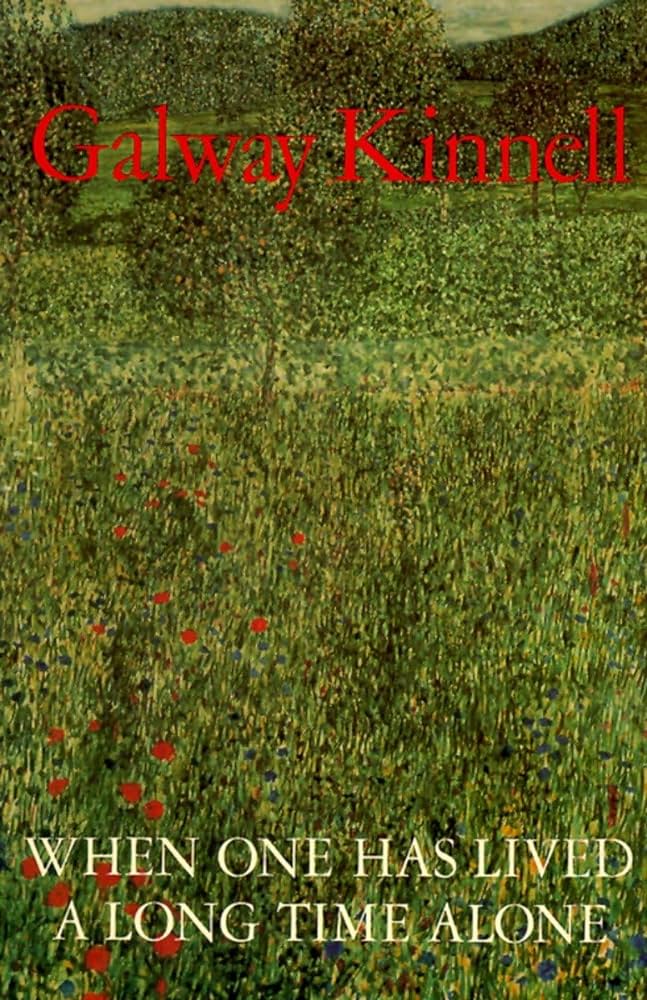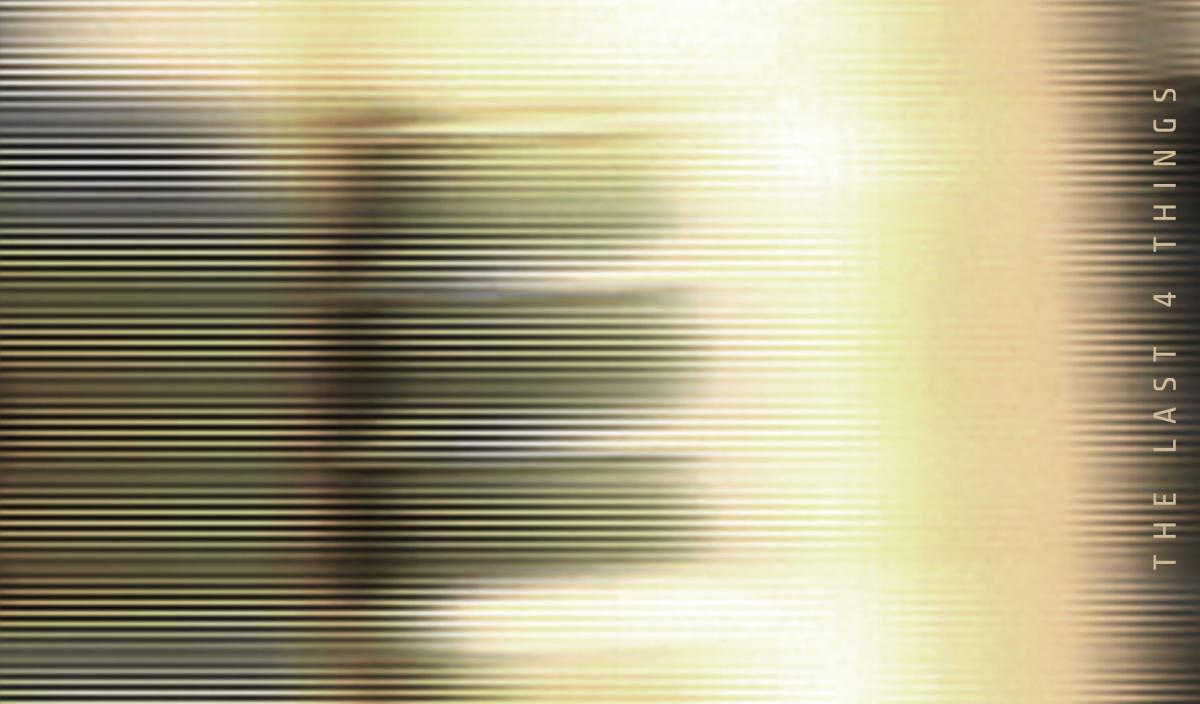Sometimes a poem knows me before I know it. Sometimes a poem unfurls a map inside of me and even if I don’t see it right away, it leaves it there for me to find.
I.
In the early 90’s, I took Galway Kinnell’s book, When One Has Lived a Long Time Alone, out of a local library. I read the title poem three times and shuddered with a visceral reaction. I loathed this poem. It repulsed me. I took the book back to the library without examining my reaction.
I still can’t say if it was a premonition or not.

Thirty years later, during the summer of 2020, I lived alone, my cat recently buried in the yard, and all anyone knew was that we had to stay home if we could. We were not to breathe each other’s air.
Every evening has a 7:30 pm and that summer I faced this hour with dread. It meant three more hours of being awake, three more hours of resisting the doom scroll of vaccine arguments, ventilator counts, and the anguish of George Floyd’s murder, three more hours of my own mind, spinning through the life events that rendered me alone in a global disaster.
I remembered Kinnell’s poem. I ordered the book and read it again. He writes, “When one has lived a long time alone,/among regrets so immense the past occupies/nearly all the room there is in consciousness.” I was filled with visceral sense of companionship. Like finding the YOU ARE HERE star on a map, even if the “here” was not a good place to be, at least someone had been here and survived to write about it.
I lured myself towards 7:30 pm with rereads of this poem which reminded me to commune with the Gila woodpeckers and bats in the hot Tucson evening. To pay attention to the quieting day, to calm myself, to dig deep for patience.
and one likes the worm, who by bunching herself together
and expanding works her way through the ground,
no less than the butterfly, who totters full of worry
among the day lilies, as they darken,
And more and more one finds one likes
any other species better than one’s own,
who has gone amok, making one self-estranged,
when one has lived a long time alone.
There were many more days that heat burned outside at my door before we felt safe to join pods and share space and while I waited, I checked this poem-map daily for the way through, reading Kinnell’s promise,
one wants to live again among men and women,
to return to that place where one’s ties with the human
broke, where the disquiet of death and now also
of history glimmers its firelight on faces
I did not fall off the face of the earth, traversing that unknown landscape. Kinnell’s poem, having been there already, led me instead to the glimmering terrain of the after.
II.
An entirely different map was unfolded inside of me by Kate Greenstreet, a poet/painter whose work spoke to my heart before we ever met. I was navigating a new academic teaching life with little time to write, and I felt forced into a suit too tight, a life too pinched. Being a teacher only would never be enough for me. I was astonished when I attended a reading from her book, The Last Four Things, and could not stop laughing at how intimately I understood her lines. The simple, funny, metaphorical stance of this dialogue spoke right into my own blood and bone and brain. Greenstreet writes:
__I like a big ship. You know, ships. They’re great. They’re giant.
__Large ships. Not like sailboats?
__Oh no, there’s no sails. No. Powered by a motor or, I don’t know. . . whatever they used to do, not sails. But they’re not modern. They’re big. You steer them with a giant wheel. That all I know,
__You have the urge to steer one?
__Yeah, I do. With a giant wheel. I’d just be there. I’d be a little small, compared to the wheel, and I’d be steering it. It’d be great. There’d be a big map. A map with stars on it. We could navigate by the stars. The stars would be very bright—that’s how we’d know where we were.
__Would you have a crew?
__They would be below.
__The ship is white. Mainly white, it has some blue.
__It’s a sea?
__Of course. Just water everywhere. At night. With the stars.
__You’d be steering your ship.
__At night would be the main time.
__How about being on the shore when someone else is on the ship.
__I wouldn’t. I wouldn’t do that again.
__Did it ever happen?
__Oh it always happens. To everyone. That’s life.

I knew this ship, this travel in the dark by the map of the stars, this fierce devotion powered by the motor of art, of imagination, of having something to say. Yes. We are often smaller than the wheel of our craft. We do navigate in the dark. Sometimes, it’s terrible. Sometimes we are stranded on the shore, unable to access our own ideas. But we can know that art will happen. We can know that there will be other ships, other seas, other nighttime navigations.
“It’d be great,” Greenstreet’s speaker assures us about that hopeful, hungry moment, the birth of a new idea that urges us off the land and into the mysterious “water everywhere” of our own minds. It would be. It would be great. The colloquial “it’d” in this line reminded me that all the voyages were not complete, and that I would still be (and always am) steering.
This moment, any bookshelf near you might hold one of these poem-maps. These living, bright entities that await to guide you, not knowing who you are or that you need them, but finding you wherever you are, whenever you are ready.
______
Frankie Rollins is the author of Do You Feel Like Writing? A Creative Guide To Artistic Confidence, and two books of fiction, The Grief Manuscript and The Sin Eater & Other Stories. She was shortlisted for Aesthetica’s Creative Writing Award 2023. Frankie is the founder of the Fifth Brain Collective, a platform offering online classes and coaching and community for creative people.

